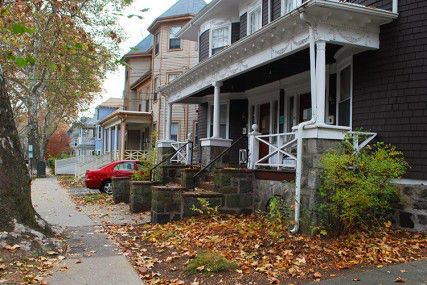
In an effort to continue to promote economic growth in the wake of the Great Recession of 2008, Mass. Gov. Deval Patrick guaranteed more than $1 billion for affordable housing programs in Boston and across Massachusetts on Thursday.
The bill allocating the funds, an Act financing the production and preservation of housing for the low and moderate income residents, will provide $1.4 billion over the next five years for housing throughout the Commonwealth. Patrick also announced $73 million in housing resources and tax breaks.
These funds will create or preserve more than 1,000 housing units for low to moderate income residents as well as fund several unplanned projects in the future, according to estimates from Patrick’s office.
“It [the bill] allows us to continue to invest in affordable housing, whether it’s creating new units or it’s modernizing state public housing,” said Matt Sheaf, spokesman for the Massachusetts Executive Office of Housing and Economic Development. “It helps preserve [housing] affordability for a multitude of mixed incomes across the state.”
Patrick said the bill was the latest step toward creating 10,000 multi-family housing units per year, a goal that grows more pressing as the cost of living in the Commonwealth increases.
“Creating or preserving affordable housing helps to generate jobs, grow local businesses, and strengthens our communities,” Patrick said in a statement on Thursday. “Government’s role is to help people help themselves, and sustainable affordable housing will create growth and opportunity in our communities that will last for generations to come.”
The allocated funds will service Boston, Cambridge, Brockton, Brookline, Chelmsford, Chelsea, Dennis, Gardner, Haverhill, Lawrence, Lowell, Medfield, Quincy, Springfield, Westfield, Williamstown and Worcester.
Thomas Downes, professor of economics at Tufts University, said the bill could provide stability to many families in the Commonwealth and boost the local economy.
“These kinds of policies are generally beneficial to lower-income individuals in a variety of ways, and they don’t seem to have detrimental effects on the people in the communities where new housing is located,” he said. “It serves to basically spread where people can choose to live, so in that sense, it generally proves to be beneficial.”
A number of Boston residents said they saw many possible benefits for investing in housing.
“Boston is such an old city, and seeing as a lot of apartments here [are] really just bad quality, at this point, it makes a lot of sense to be making a large budget to address that issue,” said Jivon An, 25, resident of Boston. “There are a lot of needs and demands, with little supply of places to live for people in the middle class here [in Boston] and in the state, and building affordable houses for them can keep them around, so it just makes sense for everyone.”
Shan Overton, 45, of Brighton, said she was doubtful one bill could solve the problem of affordable housing in the city.
“When you look at what’s around [and] what’s available, I don’t even know that it’s possible to make it [housing] affordable,” she said. “Boston seems to be becoming a lot like New York, with there really not being much that most people can pay for. It’s hard to think Boston could get that. It seems we should be able to have more diversity or opportunity, but it seems like it’s just too much to deal with already.”
Ivan Bustamante, 22, said the advancement of affordable housing would most affect growing families.
“The families are the base of our society,” Bustamante, a Brighton resident, said. “They deserve basic housing. Most of the economy rises from there, and we all benefit. Yes, it’s a lot of money, but [for] their benefit, there isn’t much more that [is] more important.”




















































































































